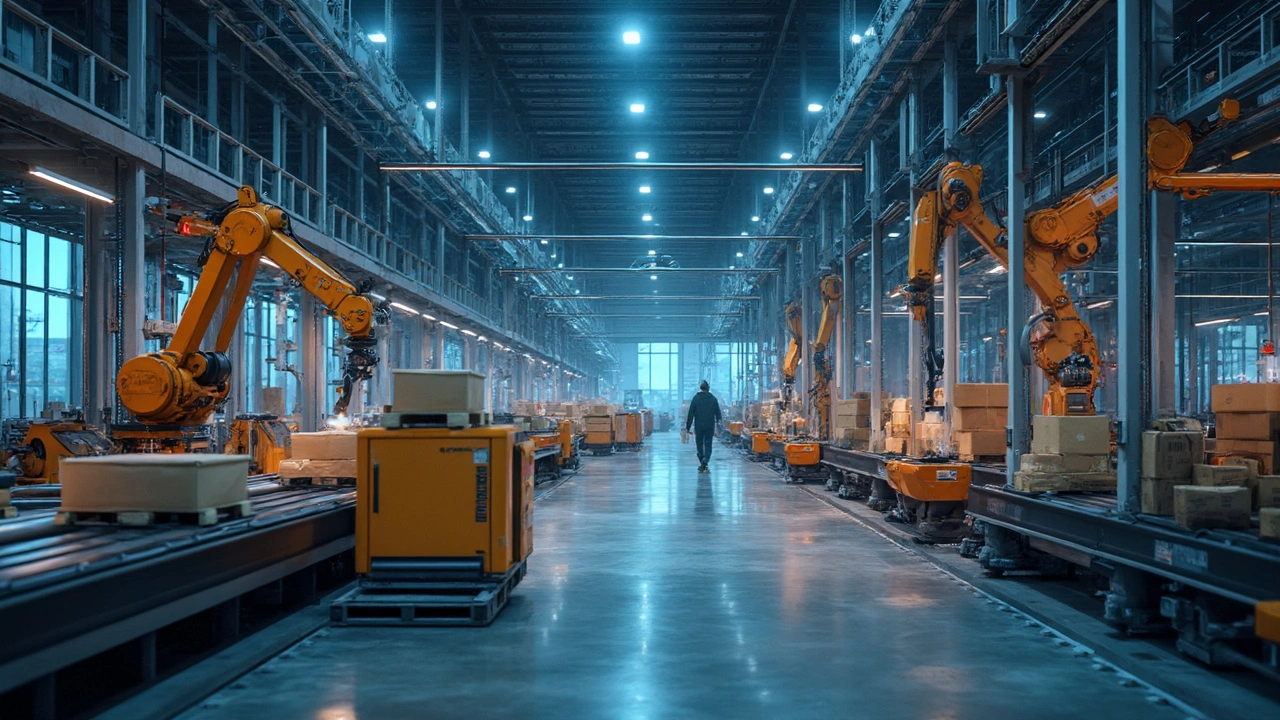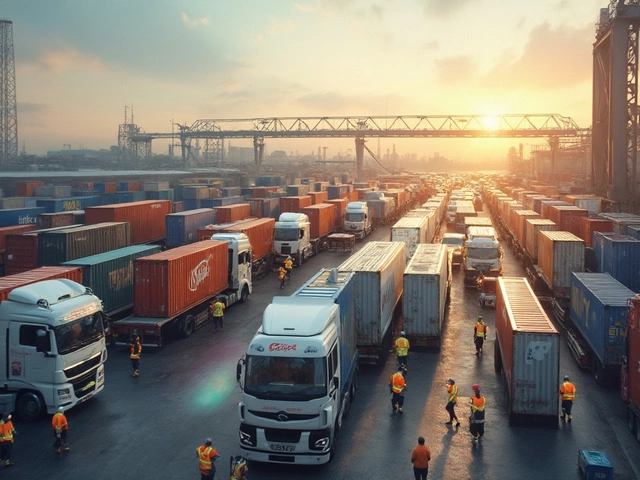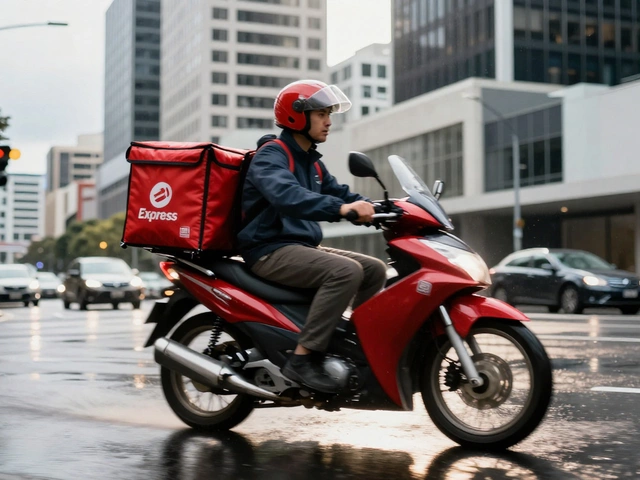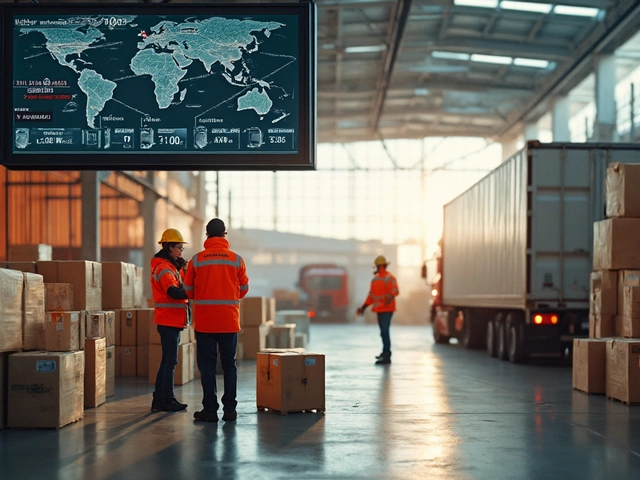When you think about logistics, you might not realize just how crucial it is to the smooth running of our everyday lives. From getting your latest online shopping haul delivered to global businesses managing complex supply chains, logistics is the backbone that keeps things moving.
So, who exactly are the big players in this field? We're talking about the top 10 logistics companies—the ones that have managed to carve out a massive presence on the world stage. These companies are masters in transportation, warehousing, and supply chain management, and they play a crucial role in ensuring that products are where they need to be, just when they need to be there.
But what's the secret sauce? How do these giants stand out from the rest? Well, it's a mix of innovative technologies, robust networks, and a relentless focus on efficiency and customer satisfaction.
- Understanding the Importance of Logistics
- Top Global Leaders in Logistics
- Innovations Shaping the Industry
- Challenges in Logistics Management
- Choosing the Right Logistics Partner
- Future Trends in Supply Chain and Logistics
Understanding the Importance of Logistics
Logistics is like the hidden engine behind everything we use, buy, and consume. It's all about managing how goods flow from point A to B, ensuring that items arrive at the right place, in the right condition, and at the right time. Imagine a supermarket without stocked shelves or an e-commerce giant unable to fulfill orders efficiently—total chaos, right?
The reason logistics companies are so important is simple: they keep the world's economy chugging along. By optimizing transportation routes, managing inventories, and streamlining supply chains, these companies help cut costs, reduce waste, and improve service levels. It's not an easy task, given the multitude of challenges like weather disruptions, global trade regulations, and technological changes.
Take companies like DHL and FedEx, for instance. They're not just moving parcels from one spot to another; they're utilizing cutting-edge technology like AI and drones to enhance delivery speeds and accuracy. This isn't just cool—it also reflects how innovation is crucial in maintaining a competitive edge in the logistics industry.
If you're curious about how impactful logistics really is, consider this: the global logistics market is expected to reach a staggering USD 12,256 billion by 2027. That's a pretty clear sign of how vital this sector is to our lives.
Top Global Leaders in Logistics
When it comes to logistics companies, a few names dominate the global scene, getting products where they need to go with remarkable efficiency. Let's take a closer look at these big players.
First up is DHL, a company that's arguably synonymous with world-class logistics. Known for its global reach, DHL operates in more than 220 countries, proving that it's a total beast in international shipping and courier delivery services. Whether it's through their express parcel service or freight forwarding, they've got solutions tailor-made for businesses of all sizes.
Another titan is UPS. They're not just about brown trucks anymore—these folks innovate constantly, recently even dabbling in drone delivery and electric vehicles. UPS's logistics branch is huge in supply chain management, helping businesses streamline operations globally.
The FedEx name can't be left out. Known for reliable express shipping, FedEx is also a leader in comprehensive logistics services. Their advanced technology in tracking and efficient distribution systems make them a favorite for businesses needing consistency and speed.
Let's not forget about Maersk, which is a giant in ocean shipping, making it a key player for import-export logistics. Their vast fleet of vessels dominates sea lanes, and they're continually focusing on sustainability to reduce the carbon footprint of shipping.
Lastly, there's C.H. Robinson. This company's got a knack for blending logistics management with cutting-edge tech. They offer a broad range of services, from freight brokerage to global forwarding, always aiming to optimize everything from cost to routes.
Each of these companies has grown and adapted to the unique challenges of delivering goods worldwide. Whether leveraging new tech or expanding their networks, they ensure that the logistics industry remains dynamic and responsive to market needs.
Innovations Shaping the Industry
The logistics world is buzzing with new technologies that are transforming how goods are moved and managed. One of the standout innovations is the use of automation and robotics in warehouses. Picture this: robots swiftly navigating through aisles to pick and pack items at lightning speed. It's not just a sci-fi dream; it's reality at the facilities of top logistics companies like Amazon and DHL.
Another game-changer is real-time tracking. Gone are the days when you had to wonder where your package was. With advanced GPS and IoT technologies, companies now offer live updates, so you know exactly what's happening with your shipment. This increase in transparency does wonders for building customer trust.
Let's talk about sustainability. The logistics industry is under pressure to reduce its carbon footprint, and many companies are stepping up. Innovations like electric delivery trucks and optimized route planning are helping to slash emissions. An excellent example is UPS, which has been investing heavily in green technologies. In fact, by 2023, UPS aimed to have 25% of its fleet running on alternative fuels.
And who could forget about drones? Companies like FedEx are experimenting with drone deliveries for remote areas and urgent shipments. It's still in the trial phase, but it hints at the future of fast parcel delivery.
Finally, cloud-based logistics platforms are making waves. These platforms allow better coordination among all parties involved, from suppliers to end customers, by providing a single source of truth. It's like having your logistics managed by a supercomputer that's working 24/7 to ensure no hiccups.
These innovations aren't just flashy tech; they're real-world solutions helping logistics companies deliver services more efficiently and effectively. It's an exciting time for the industry, with technology making it possible to tackle challenges head-on.
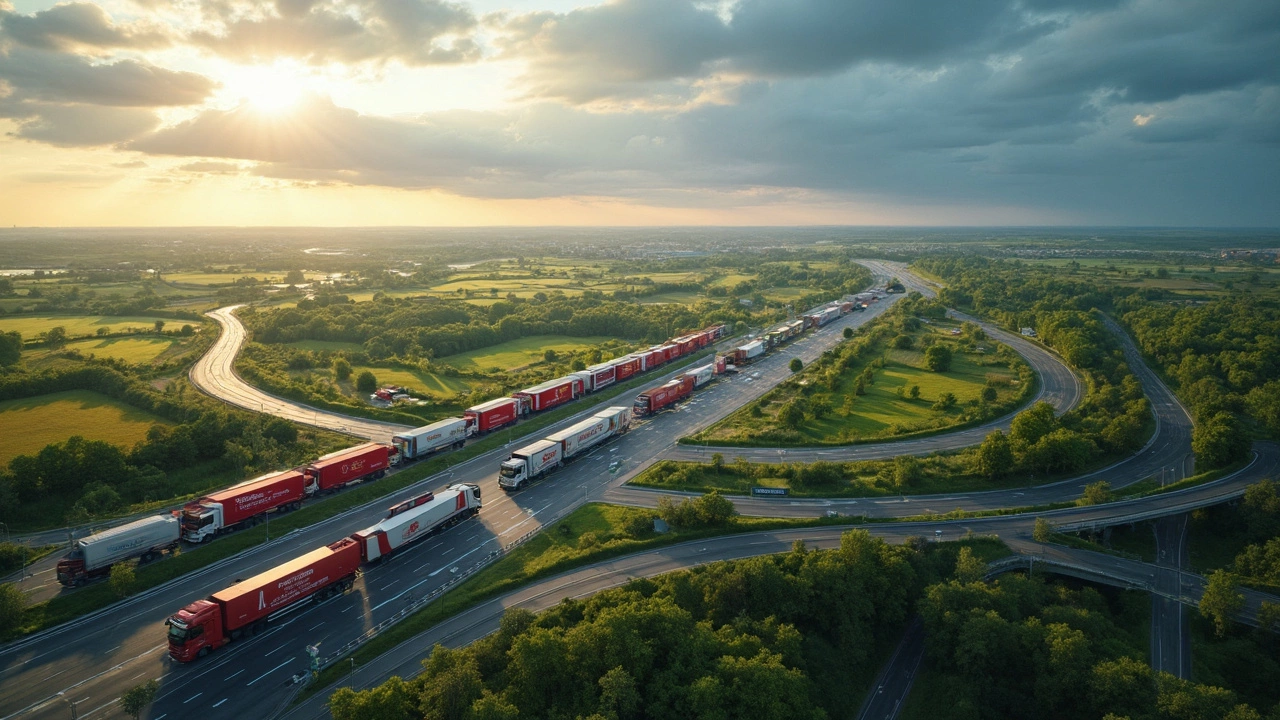
Challenges in Logistics Management
Running a logistics operation isn't a walk in the park. There are loads of hurdles that logistics companies face daily, which can make or break their success. One major challenge is managing the unpredictability of supply and demand. Just think about a sudden spike in online orders or an unexpected natural disaster. These events can throw the entire supply chain out of whack.
Another biggie is fuel costs. Fuel prices can be pretty volatile, and since transportation is key to logistics, this unpredictability can wreak havoc on budgets. Not to mention the environmental concerns and the push towards more sustainable practices, which require significant investments in green technologies.
Then there’s the technological aspect. The logistics industry needs to adapt to new technologies like AI, IoT, and blockchain to stay competitive. Implementing these can be costly and complicated, requiring both time and skilled personnel.
Globalization adds another layer of complexity. Dealing with different regulations, import/export laws, and cultural nuances means logistics companies have to be on their toes to ensure smooth operations across borders.
- Supply chain visibility: Ensuring end-to-end visibility in the supply chain is paramount for efficiency and customer satisfaction. Yet, achieving this can be tough without the right technology and processes in place.
- Labor shortages: Finding and retaining skilled workers is becoming harder, especially with the rise of automated systems that demand a tech-savvy workforce.
- Cargo theft and security: Keeping goods safe from theft and damage during transport can be a constant concern, affecting not just margins but also reputations.
Overall, it’s a challenging yet rewarding field. Stay sharp, stay adaptable, and most importantly, stay ahead with innovation and the right strategy.
Choosing the Right Logistics Partner
Picking the right logistics company is no small task. It's like choosing a business partner, and you want to make sure they're the right fit for your needs. You're looking for someone who can simplify your supply chain processes and deliver reliable services. Here’s how you can make a smart choice.
First off, make sure you do your homework. Research potential partners’ backgrounds, and check out their industry reputation. Some companies, like DHL and UPS, are well-known for their reliability and extensive networks.
Communication is critical. Ensure they offer transparent communication channels. It’s vital to have clear reporting and prompt updates, especially when dealing with unexpected issues.
- Are they tech-savvy? In today's world, logistics is all about technology. See if they use the latest systems for tracking and managing deliveries effectively.
- Check their scalability options. If your business grows, you need a partner who can grow with you. This means flexible terms and the ability to handle increased demand.
- Understand their geographical reach. Companies like FedEx have a vast global presence, which means they can handle international shipments with ease.
- Price matters, sure, but don't let it be the only factor. Quality and service reliability should always trump bargain rates.
Here's a quick rundown of must-check criteria:
| Criteria | Importance |
|---|---|
| Reliability | High |
| Technology Use | Medium |
| Cost Effectiveness | Medium |
| Scalability | High |
| Customer Service | High |
Choosing your logistics partner is about creating a symbiotic relationship where both parties benefit. Keep these points in mind, trust your gut, and ensure they're in line with your core values. Your business will thank you for it!
Future Trends in Supply Chain and Logistics
Peek into the crystal ball of logistics, and you'll notice a few things that are set to shake up the industry in the coming years. The rise of e-commerce has put the spotlight on logistics more than ever, driving demand for quicker, more efficient delivery solutions. So, what trends should we be looking out for?
Automation is a biggie. Warehouses buzzing with drones and robots aren't just sci-fi fantasies. Automated systems help streamline operations, reduce human error, and save time. The idea of 24/7 unmanned supply chain operations is becoming a reality, thanks to these technological marvels.
Another game-changer is sustainability. Everyone's talking about it, and logistics companies are not behind. With the push towards greener practices, expect to see more electric delivery vehicles and eco-friendly packaging in the mix. It's not just about reducing emissions; it's about efficient use of resources and cutting costs.
Blockchain technology is making waves for its role in enhancing transparency and traceability. Imagine a world where every shipment is tracked in real-time, from manufacturer to doorstep, in an unchangeable way. This system of record can drastically reduce disputes and streamline customs processes.
The human touch is not completely out the window. As tech takes over, businesses are focusing on customer experience. Personalized service, flexible delivery options, and real-time updates are what customers now expect as standard.
"The future of logistics is smart, sustainable, and customer-centric. Companies that embrace these trends will lead the charge in innovation and efficiency," says Jane Doe, a logistics analyst at Global Supply Chain Inc.
So, what's the takeaway? Stay ahead by embracing these trends. The logisticians of tomorrow who adapt will not only thrive but shape an industry on the move.
